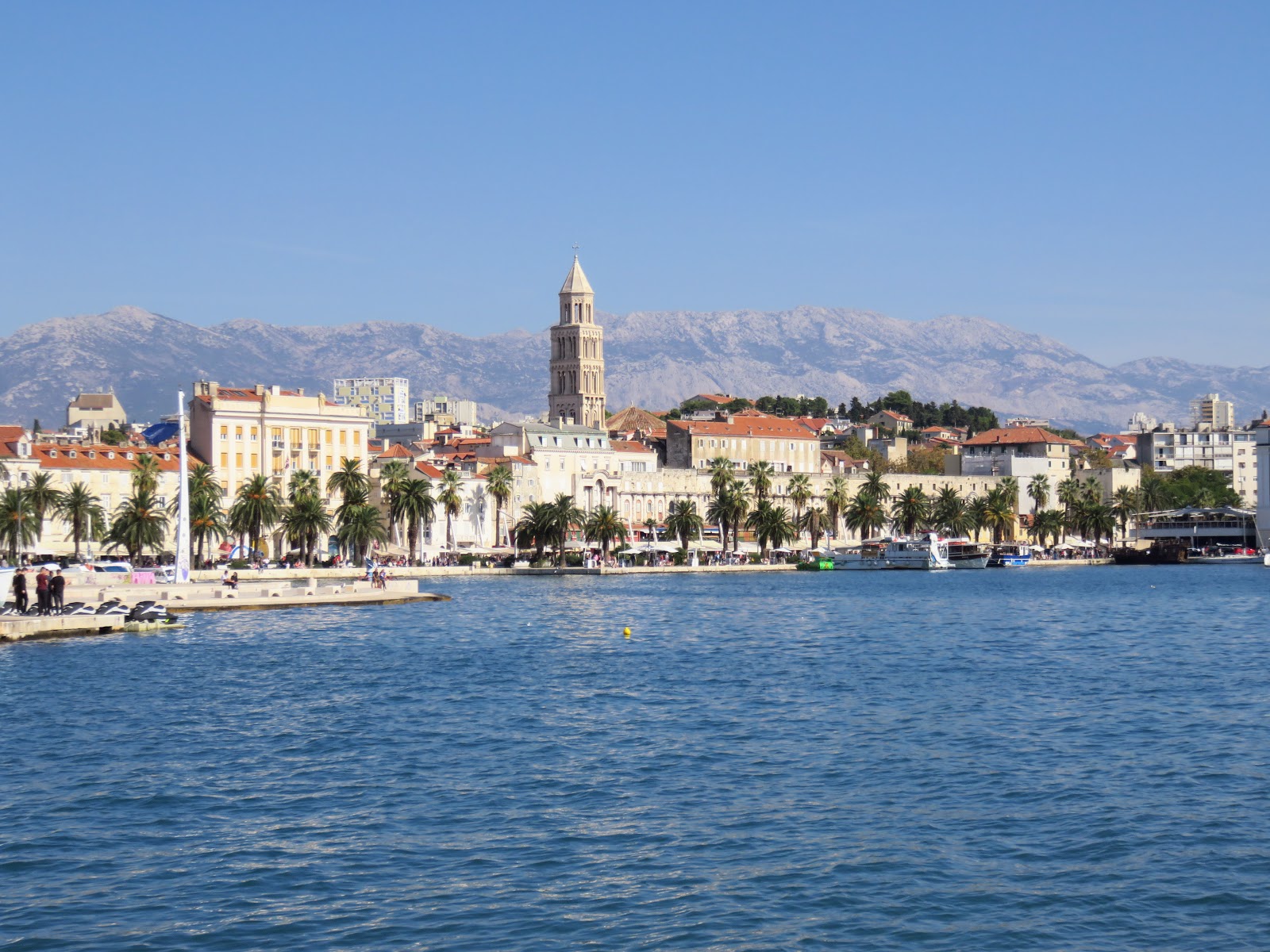Split
Off mainland Croatia are thousands of islands scattered
in a broad arc across the Adriatic Sea. The thing to do in summertime is to hop
from one island to the next, which is made very accessible by a huge network of
inter-island ferries. We thought about doing this ourselves, but we were a
little late in the season. In October, many of the ferry routes were running
limited service, and by November many would cease entirely until the spring. We'd also already had our island hoping experience across Thailand’s Andaman Sea,
so we felt like we weren’t missing out on too much.
We did, however, choose to take the ferry from Dubrovnik
to Split, which made stops at a handful of the major islands on the way. Had
this been earlier in our trip, we might have tried to do a day trip at one of
the islands along the way, but we had no energy for that anymore and went
straight through to the last stop in Split. This was also a way to avoid a double border crossing out of
and then back into Croatia through Bosnia and Herzegovina, which owns a small
piece of ocean-front property in the middle of Croatia’s stretching coastline. Despite
departing around noon, we didn’t arrive in Split until after dark, which didn’t
leave much time to explore.
We were finally able to get our bearings the next morning.
Split was gorgeous, but at this point we shouldn’t have expected anything less,
after having been in similar coastal towns along the Adriatic like Budva, Kotor, and
Dubrovnik. Unlike the others, Split was a sizable city, which was a nice change
in pace. It wasn’t nearly as touristy. It felt like people actually
lived there and there were plenty of active industries beyond tourism. It reminded me of California. Right on the water, lots of palm trees, and most of the buildings had matching white facades with red tile roofs.
Split has a ton of history and there are Roman ruins
scattered all around town. Most of these were from a palace and fortification constructed for the Roman emperor Diocletian to use in 300 AD for retirement.
Many of the walls and buildings are still standing and they are all right in
the center of town. Modern day cafes and restaurants are located under ancient
stone arches and in previously created courtyards. In fact,
there is even a cafe that uses the stone steps of the old central square as
seating, so you can grab a drink and sit in the square just like someone might
have done thousands of years ago.
Being on the water, Split also has its fair share of
beaches. We walked to a few of them to the southeast of downtown. These
beaches, like most others on the Adriatic, were pebble beaches without any
sand, but they were still nice to walk on. It was late in the season, so there
weren’t too many people out. Only the serious swimmers were in the water,
swimming laps along the shore for exercise.
We also used our time in Split to be productive on a few things. We put some finishing touches on our travel plans. All the essential logistics were now figured out and full booked through the end of our trip. I thought this would have meant that we were done, but no, we still had plenty of other preparations to make for our return home. We started looking into our health insurance options (what an incredible headache…) and I even updated my resume and started talking to a job recruiter. That was a rude awakening. It made me realize how long ago it had been since I worked. I was having to remember what it was that I used to do, and it wasn't always easy. We also managed to teach ourselves how to play cribbage. We found a cute café with a strong wifi signal and spent a couple afternoons teaching ourselves how to play from a handful of YouTube videos. We thought it might come in handy to know a few card games before being isolated on a cruise ship for two weeks without any internet. But we still had a long way to travel to get to Rome. We were back to taking trains, and our next stop was in Croatia’s capitol, Zagreb.


























Comments
Post a Comment